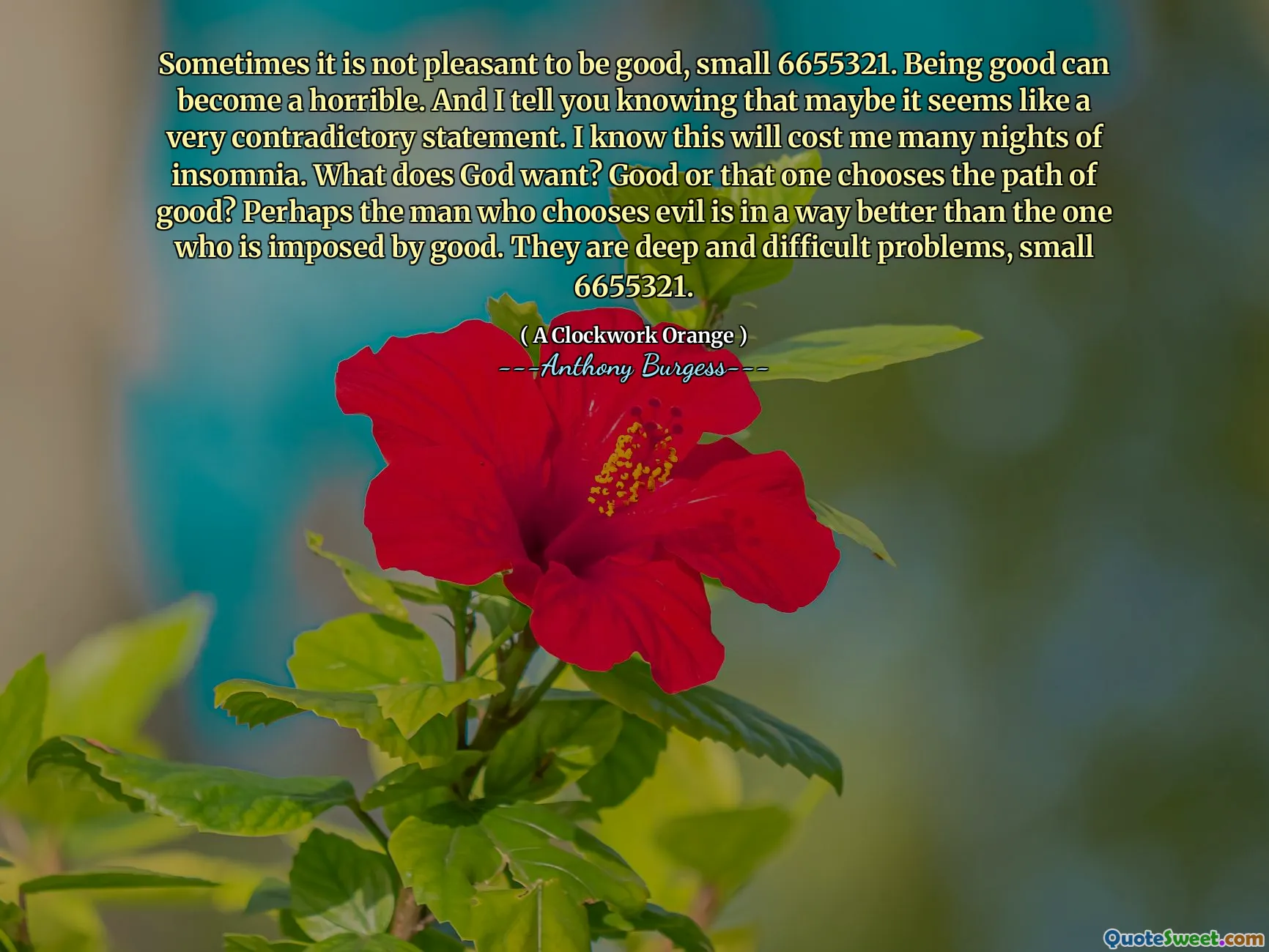
Sometimes it is not pleasant to be good, small 6655321. Being good can become a horrible. And I tell you knowing that maybe it seems like a very contradictory statement. I know this will cost me many nights of insomnia. What does God want? Good or that one chooses the path of good? Perhaps the man who chooses evil is in a way better than the one who is imposed by good. They are deep and difficult problems, small 6655321.
In "A Clockwork Orange," Anthony Burgess explores the complexities of morality, suggesting that being good can sometimes lead to unpleasant consequences. The narrator reflects on the idea that the obligation to be good can be burdensome, leading to inner turmoil. This paradox raises questions about whether it is better to inherently choose good or to be forced into it, suggesting that the freedom to make choices, even if they are wrong, may hold more value than being predestined to behave morally.
The passage emphasizes that the struggle between good and evil is not straightforward and that choices define our character. The narrator acknowledges the weight of these thoughts, knowing they may invite sleepless nights filled with contemplation. This reflection speaks to a deeper philosophical inquiry about the nature of goodness and the essence of free will, suggesting that true morality comes from the ability to choose rather than adherence to imposed standards.






